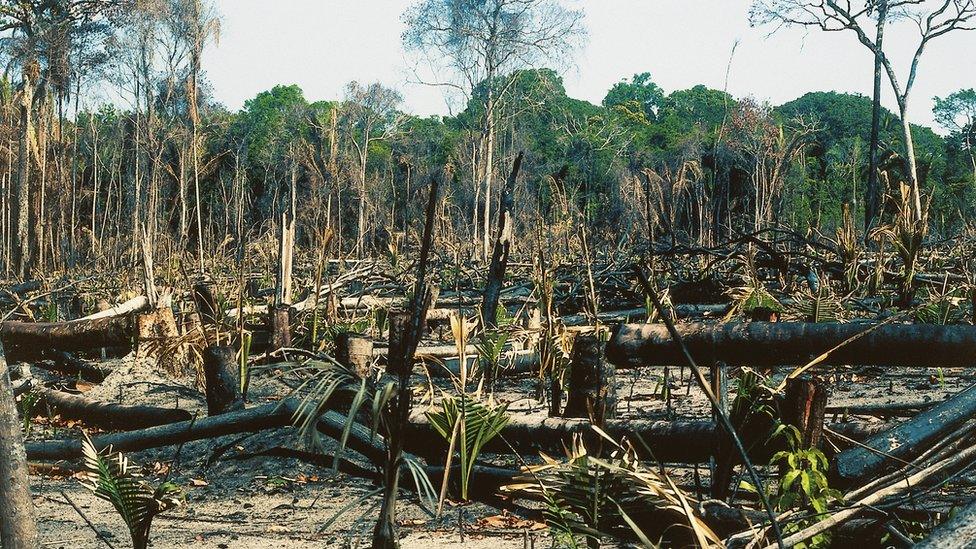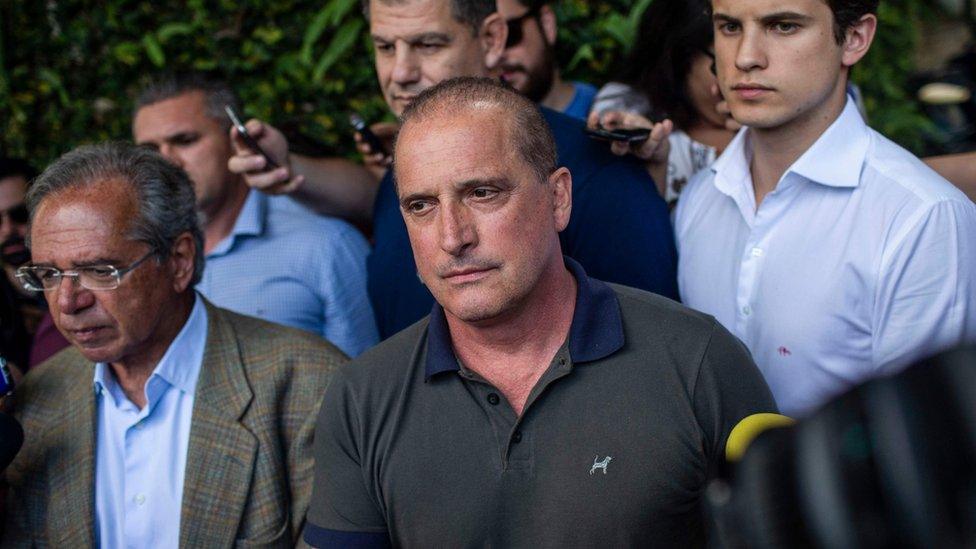Brazil: Bolsonaro plans threaten Amazon, say experts
- Published
Brazil's highly biodiverse Cerrado is being destroyed for soybean production, conservationists say
Brazil's far-right President-elect Jair Bolsonaro will merge the ministries of agriculture and the environment, an aide says, in a move which critics say could endanger the Amazon rainforest.
Mr Bolsonaro's future chief of staff, Onyx Lorenzoni, announced the new "super ministry" as details of the new administration began to emerge.
The controversial new Brazilian leader is supported by the agribusiness lobby.
A former environment minister tweeted that the move was "tragic".
"This disastrous decision will bring serious damage to Brazil and will pass on to consumers abroad the idea that all Brazilian agribusiness survives thanks to the destruction of forests," Marina Silva said.
Earlier, Vice President-elect Hamilton Mourao dismissed environmentalists' concerns about development in the Amazon, saying the government would act responsibly by managing the spread of agriculture in the region.
Why is the Amazon important?
The Amazon region holds the largest tropical rainforest in the world and is home to plant and animal species that are still being discovered by scientists.
Most of its millions of square kilometres are inside Brazil, where under laws dating back to 1965, landowners must keep a percentage of their terrain forested.

The Amazon rainforest loses vast areas to deforestation every year
That percentage ranges from 20% in some parts of the country to 80% in the Amazon.
But a debate has raged in Brazil over the often conflicting needs of environmental protection and economic development.
Earlier this year the supreme court upheld major changes to laws which environmentalists say will make illegal deforestation acceptable.
What are Mr Bolsonaro's views on the environment?
Mr Bolsonaro, 63, has previously suggested that Brazil could pull out of the 2015 Paris Agreement on climate change. He says its requirements compromise Brazil's sovereignty over the Amazon region.
Far-right politician Jair Bolsonaro has won Brazil's presidential election. But who is he?
In the run-up to the election he had suggested merging the agriculture and environment ministries, saying, "Let's be clear: the future ministry will come from the productive sector. We won't have any more fights over this."
Warned by activists that such a move would undermine the environment ministry's controls on the commercial sector, he struck a more conciliatory tone saying he was "open to negotiation on that issue".
What else has been been decided?
Following behind-closed-door talks on Tuesday, Mr Bolsonaro's top economic adviser Paulo Guedes confirmed that an economic super-ministry would be formed combining finance, planning, industry and trade.
It will be headed by Mr Guedes.

Senior aide Onyx Lorenzoni (C) and economist Paulo Guedes (L) held talks with Mr Bolsonaro in Rio de Janeiro
Mr Lorenzoni also announced that Mr Bolsonaro's first foreign visits would be to Chile, Israel and the US. He described them as countries that "share our worldview."
Mr Bolsonaro swept to victory in Sunday's election, easily beating his left-wing rival Fernando Haddad.
The former paratrooper is a deeply polarising figure who has in the past defended the actions of the country's former military regime and said he is "in favour of dictatorship".
His populist approach has led to some media dubbing him "Trump of the Tropics".